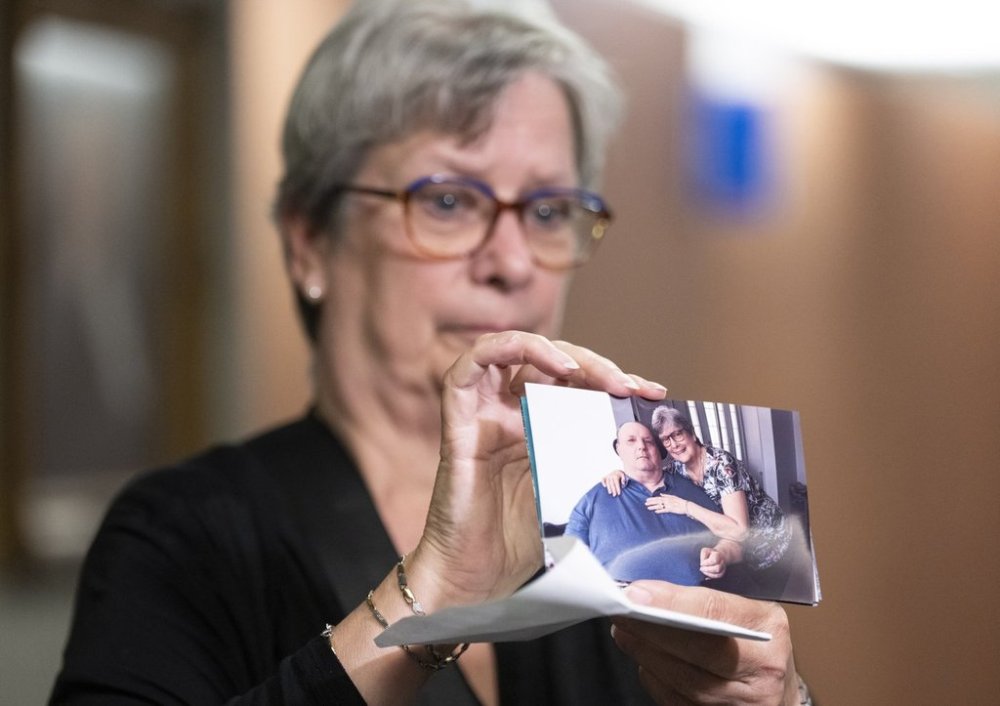Coroner finds lapses in care for Quebec man who sought MAID after hospital bedsores
Advertisement
Read this article for free:
or
Already have an account? Log in here »
To continue reading, please subscribe:
Monthly Digital Subscription
$0 for the first 4 weeks*
- Enjoy unlimited reading on winnipegfreepress.com
- Read the E-Edition, our digital replica newspaper
- Access News Break, our award-winning app
- Play interactive puzzles
*No charge for 4 weeks then price increases to the regular rate of $19.00 plus GST every four weeks. Offer available to new and qualified returning subscribers only. Cancel any time.
Monthly Digital Subscription
$4.75/week*
- Enjoy unlimited reading on winnipegfreepress.com
- Read the E-Edition, our digital replica newspaper
- Access News Break, our award-winning app
- Play interactive puzzles
*Billed as $19 plus GST every four weeks. Cancel any time.
To continue reading, please subscribe:
Add Free Press access to your Brandon Sun subscription for only an additional
$1 for the first 4 weeks*
*Your next subscription payment will increase by $1.00 and you will be charged $16.99 plus GST for four weeks. After four weeks, your payment will increase to $23.99 plus GST every four weeks.
Read unlimited articles for free today:
or
Already have an account? Log in here »
MONTREAL – Quebec health authorities should improve their approach to caring for people with spinal cord injuries, a coroner has recommended, after a man sought a medically assisted death because of bedsores from a disastrous 2024 hospital stay.
On Tuesday, coroner Dave Kimpton published his report on the death of Normand Meunier, 66, who received MAID in March 2024, two months after an 11-day stay at a hospital in St-Jérôme, Que., north of Montreal.
During his time in hospital, the quadriplegic Quebec man developed pressure sores so painful he wanted to die. His story received international attention.

Kimpton issued a total of 31 recommendations, including that hospitals better co-ordinate care for patients with complex conditions. And while the health network has taken corrective actions since Meunier’s death, the coroner wrote, “further measures are essential to prevent other patients from experiencing similar care trajectories.”
“The care of individuals with spinal cord injuries requires particular attention to wound prevention — all wounds in these patients should be prevented or contained from the early stages, as their development can have lasting consequences on health and quality of life.”
The recommendations aim to correct what the coroner describes as systemic failures in the care of patients with spinal cord injuries.
Meunier worked as a truck driver before a debilitating injury in 2022. The coroner’s inquiry heard that Meunier’s condition required specialized monitoring, rigorous preventive measures, and quick access to appropriate therapeutic surfaces, all of which were lacking during his hospital stay.
Among those who testified was Sylvie Brosseau, Meunier’s partner. She said her late husband had been transported to hospital on Jan. 18, 2024, with respiratory issues, adding that she had warned hospital staff he was prone to sores and needed specialized care, including a therapeutic mattress.
However, Meunier spent four days on a stretcher, two days in intensive care and the specialized mattress only arrived on the day of his discharge on Jan. 29.
Meunier requested medical assistance in dying and passed away on March 29, 2024.
Kimpton noted the pressure sores appeared or worsened in hospital, a situation that revealed several serious problems: incomplete risk assessment, lacking documentation, insufficient manipulation of Meunier’s body to prevent sores from forming, delays in health workers’ access to needed equipment, and no followup from wound-care experts.
The coroner noted the absence in Meunier’s file of wound-monitoring paperwork and a Braden Scale, which is a risk assessment tool used to identify patients vulnerable to bedsores. Also missing from the file was a request for a wound-care nurse — an omission Kimpton described as “striking.”
The lack of communication between health-care workers also caused Meunier’s condition to worsen quickly. Kimpton noted that prevention and management doesn’t fall on the responsibility of a single professional but requires a multidisciplinary approach between physicians, specialized nurses, physiotherapists, occupational therapists, and dietitians.
“This collaborative approach is essential to ensure optimal quality of care and effectively prevent complications,” Kimpton said. “I am convinced that the implementation of standardized care protocols and risk assessment tools will improve the quality and consistency of practices.”
The family’s lawyer, Patrick Martin-Ménard, had said that Meunier’s story shows that bedsores, and the care of those susceptible to them, remains a “blind spot” in the health system.
During the inquiry, Brosseau had noted that despite his quadriplegia, he still had plans and goals. “But because of the incurable bedsore that appeared at the hospital, he had no more perspective on life,” Brosseau said last May.
This report by The Canadian Press was first published Nov. 25, 2025.

